This March, our theme was #PolarPride with a focus on appreciating APECS members from all aspects of polar sciences. We have fantastic members and wanted to show our pride! Our goal was to provide a range of activities where members could interact, participate in professional development training, and showcase their research. We also hoped to recognize individuals that are traditionally underrepresented either because of what they study or because of systemic issues of diversity within polar sciences. Overall, we had good engagement with members during this Polar Week, especially on social media, and you can find a summary of the specific activities below:
-
Social Media
Since both APECS and Polar Week are international, we try to engage as much as we can with our members over our social media channels so that everyone can equally participate. During March Polar Week 2018 we were active on the APECS Facebook (@APECS4u) and Twitter (@Polar_Research) accounts. For both Facebook and Twitter, engagement is the number of people who engaged with your page including clicks and impressions are the number of times any content from your Page or about your Page entered a person's screen. On Facebook, our impressions, engagement, and total likes increased compared to February and April (Figure 1, 2, and 3). Similarly, impressions and engagement increased for Twitter but to a greater extent than on Facebook (Figure 4 and 5). Please note that activity for April was only calculated until the 23. The increase in activity could be due to the fact that the total number of posts were higher during the month of March, but we are still very happy with the engagement we got leading up to and during Polar Week.

Figure 1: APECS Facebook impressions for February, March, and April 2018.

Figure 2: APECS Facebook page engaged users in February, March, and April 2018.

Figure 3: APECS Facebook daily new page likes in February, March, and April 2018.
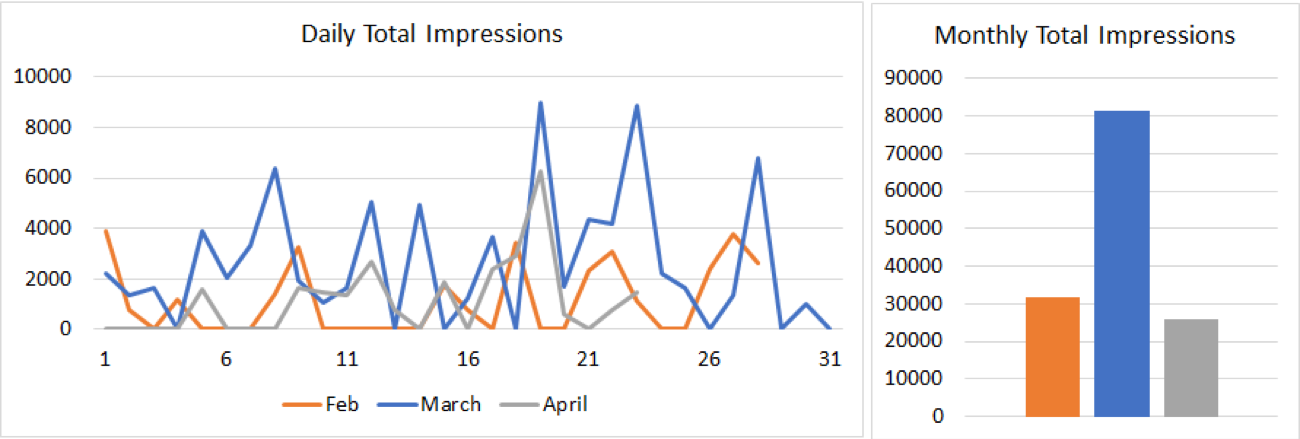
Figure 4: APECS Twitter total impressions in February, March, and April 2018.
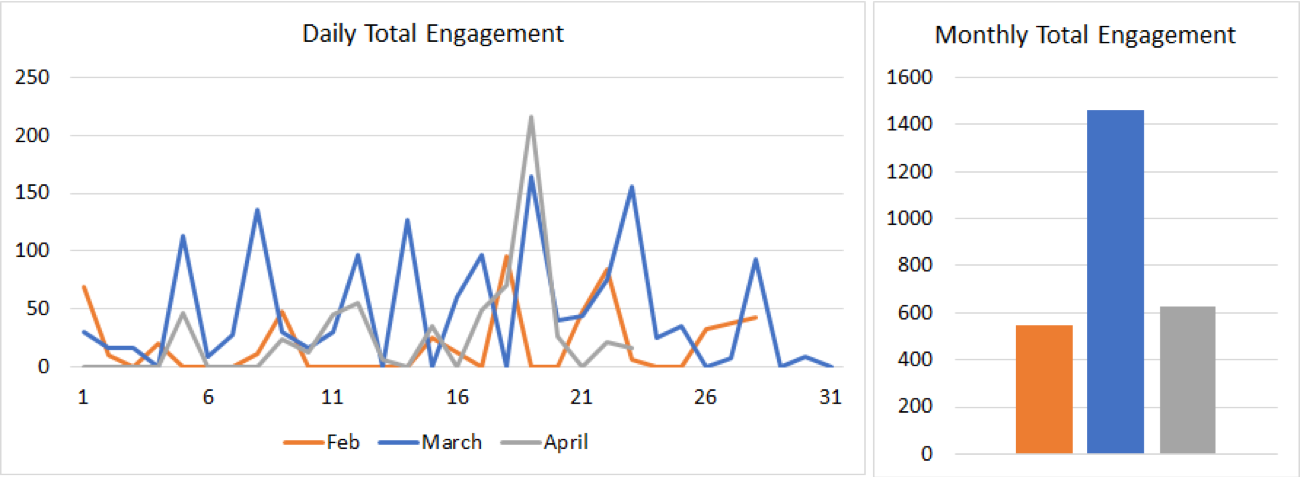
Figure 5: APECS Twitter total engagement in February, March, and April 2018.
During Polar Week we do regular posting about events and opportunities, but we also did two specific social media campaigns. The first was our #PolarHaiku campaign, where we had members tweet polar themed Haiku poems to our account. We had 33 #PolarHaiku tweeted to us during Polar Week, and the haikus included photos, videos, gifs and had high like and retweet rates.
Our second campaign was Biotweeps, which is a Twitter account, blog and Facebook page which features a different biologist every week. You can find them online at https://biotweep.wordpress.com/. During Polar Week, we gave one APECS member the chance to host the biotweeps Twitter account each day. Everyone who participated found that this was an amazing opportunity, and a fun way to do outreach about their research. In total, APECS posted 314 times and got great impressions, engagement, and a high rate of retweets and likes on our posts (Figure 6).
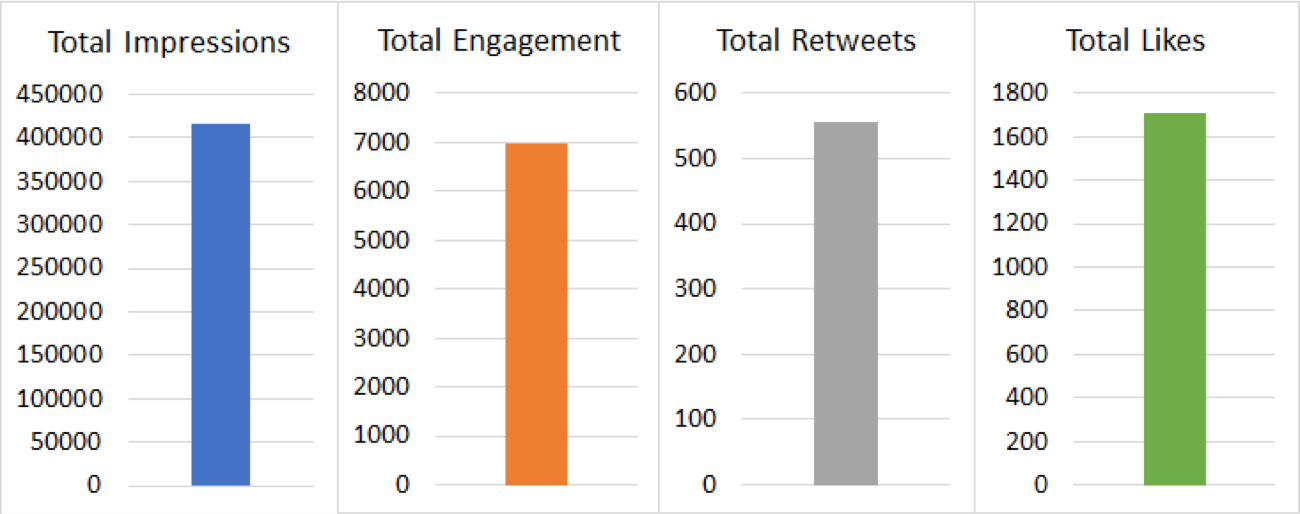
Figure 6: Total impressions, engagement, retweets, and likes for all posts while APECS hosted the Biotweeps account from March 19 - 25, 2018.
-
APECS Polar Week Photo Contest 2018
This year, in the spirit of #PolarPride, a Photo and Image Competition was held with the aim to showcase the various aspects of pride at the poles. In order to increase participation and enthusiasm within APECS members who may not be field-based, the competition included two categories: My Polar Pride - Working Environment, which included photos of fieldwork, landscapes, wildlife, people and places, and a second category, My Polar Pride - Research and Laboratory, which included images in general (photo, figure, map) of the indoor polar arena. We received around 60 entries which were showcased on the APECS website and were open for voting by the general public during Polar Week. The winners of the competition (which included 100EUR to be used towards their next polar conference) were Sarah Baatout (Belgian Nuclear Research Centre, Belgium) and Gustavo Souza dos Santos (Faculty of Pharmaceutical Sciences of Ribeirão Preto, University of São Paulo, Brazil). Thanks again for all of the wonderful entries, and we are looking forward to the next Polar Week!
Category: Working Environment
1st Prize: Sarah Baatout, Belgian Nuclear Research Centre, Belgium
Description: Health, drugs & environment monitoring, & school connections at Belgian Princess Elisabeth station in Antarctica as analog for
human space exploration.
Category: Research and Laboratory
1st Prize: Gustavo Souza dos Santos, Faculty of Pharmaceutical Sciences of Ribeirão Preto, University of São Paulo, Brazil
Description: Antarctic macroalgae in exposition at the Summer School in Pharmaceutical Sciences 2018, showing to undergraduate students from different states of Brazil the importance of Polar Science.
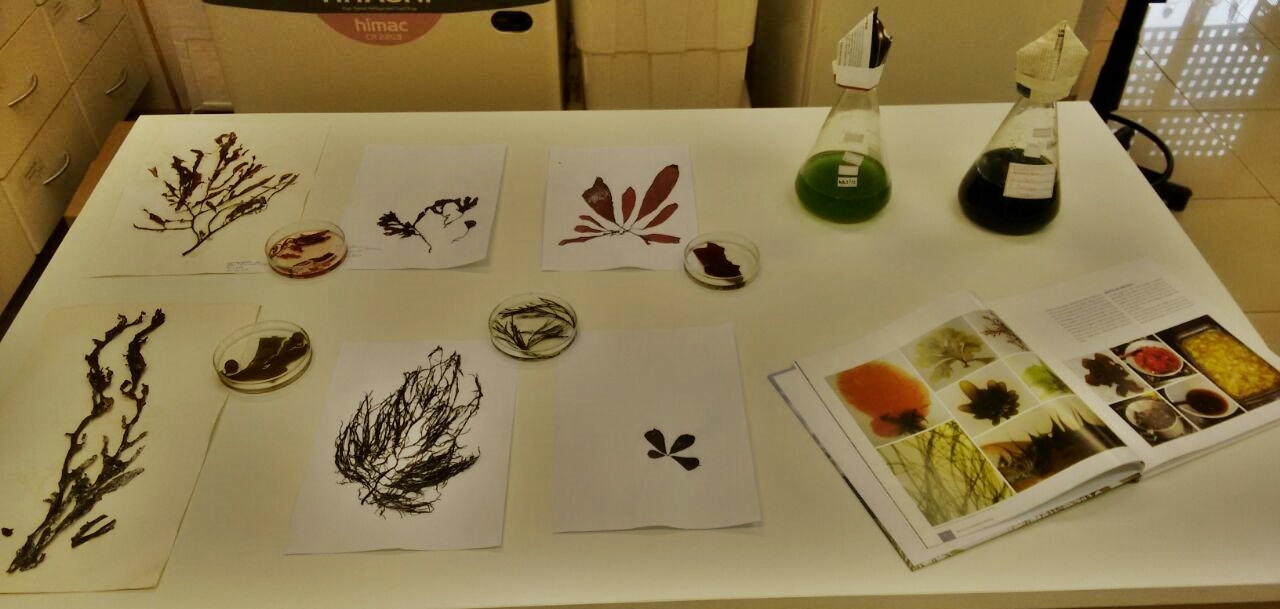
-
Webinars
Webinars are one way APECS provides online education and training for our members. This Polar Week we had members vote on which webinar topics they wanted to see (Figure below). The topic “Proposal and Grant Writing” had the most votes so it was selected, and we also had a lot of positive feedback about the “Harassment in the Field” topic so it was selected as the second topic.

Figure 9: Poll where members voted on which webinar topics they wanted during March Polar Week.
The Proposal and Grant Writing webinar was held on March 21, 2018 at 16:00 GMT. We had four speakers: Chuck Amsler, Professor, University of Alabama at Birmingham, United States; David Walton, Emeritus Professor, British Antarctic Survey, UK; Chandrika Nath, Parliamentary Office of Science and Technology, UK; and, Imke Fries, Alfred-Wegener Institute, Germany. A recording of the webinar is available in the APECS Webinar Archive. We had 16 people present at the webinar and the recording has 40 plays.
The Harassment in the Field webinar was held on March 23, 2018 at 16:00 GMT. We had five speakers: Robin Bell, president of AGU and associate professor at Lamont-Doherty Earth Observatory; Dawn Sumner, chair of the department of Earth and Planetary Sciences at UC Davis; Tracy Sheeley, head of field logistics for CPS Polar Services; Lisa Rom, the program director for NSF Division of Ocean Sciences and Education Liaison for the Office of Polar Programs; and, Meredith Nash, Senior Lecturer at the University of Tasmania. A recording of the webinar is available in the APECS Webinar Archive. We had 25 people attend the webinar, and the recording has 103 plays.
-
Blog Series
To show our #PolarPride we wanted to highlight the work of the wonderful volunteers on the Executive Committee, Council, and National Committees by featuring them in a blog series. We released one blog post each day during Polar Week, featuring an outstanding APECS member. We featured Jilda Caccavo, Jennifer Cooper, Ruth Vingerhagen, Mathieu Casado, Scott Zolkos, TJ Young, and Christel Hansen. Check out their interviews here. We hope to continue to highlight members who are greatly contributing to APECS in more formal ways in the future.
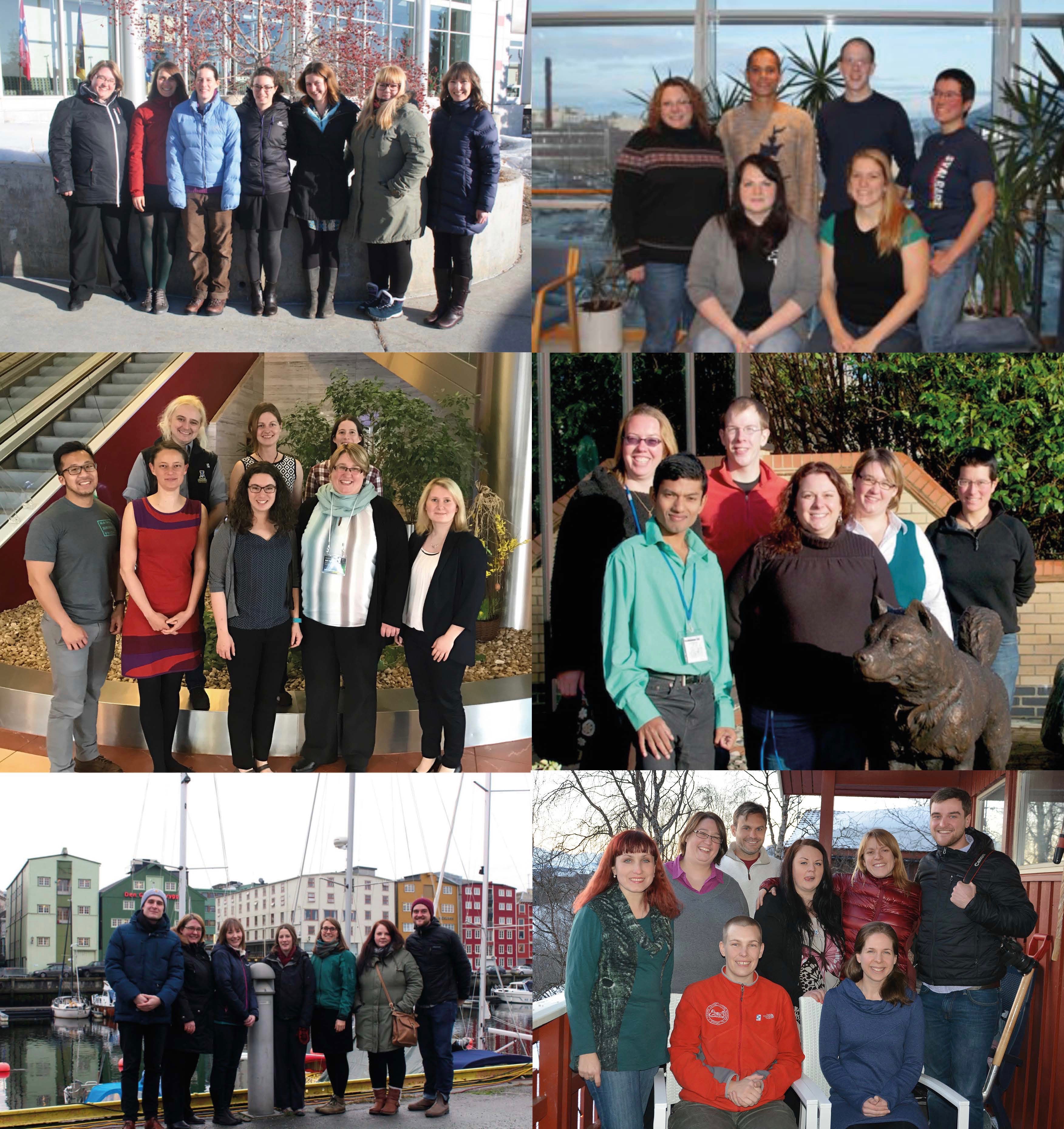
-
 Polar Week is a series of events happening globally, with the goal of promoting the science taking place in polar latitudes.
Polar Week is a series of events happening globally, with the goal of promoting the science taking place in polar latitudes.

